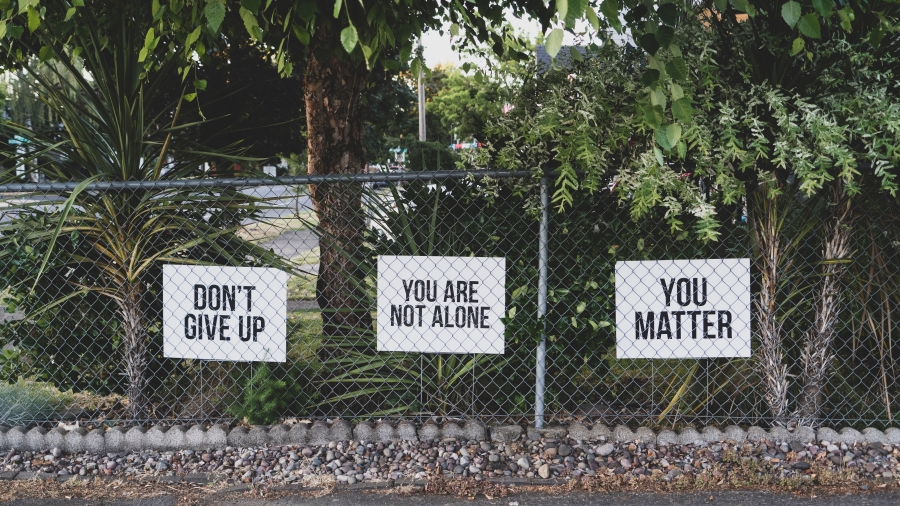
Maps and guides: improving navigation of the Maricopa mental health system
Dawn Augusta, ASU Edson College of Nursing & Health Innovation
“We need a whole workforce on this problem, and that’s why I think taking this angle is resilient. We have to change the system through relationships.”
- Dawn Augusta, KER fellow 2020
Background
An uncoordinated continuum of care further burdens people living with co-occurring mental and physical health conditions. The system's complicated design creates navigation barriers and has led to costly over-utilization of crisis care pathways that are largely ineffective. This is important because our mental health system is part of the complex service system that critically impacts population health.
This system's success drives individual outcomes that contribute to our population’s experience of chronic homelessness, incarceration, recidivism, and hospital utilization, something known as the “revolving door” phenomenon. Considering the social burden, as well as the pressure experienced by health professionals, first responders, health organizations, and criminal justice networks, it is critically important to understand the factors that contribute to this phenomenon to effectively deploy evidence-based interventions aimed at positively impacting individual outcomes and diverting them from the crisis treatment pathway.
Research question
-
How does the establishment of a nurse coaching relationship impact peer support specialists’ wellbeing and role performance?
Methods and findings
Dawn’s Augusta’s fellowship project was two-fold. First, she examined the local mental health network and created a visual map that portrays the system's meaningful nodes. Stakeholders had expressed a desire to understand the publicly funded mental health system more holistically. Discovering the components and policies that impact utilization pathways are an essential first step in addressing the system's bottlenecks, kinks, and blockages. Augusta’s effort to map the mental health system was a collaborative project developed through stakeholder interviews using participatory design methods. And the map that she created provides a skeleton version of the system that other mapping overlays can be built upon.
Next, informed by this mapping project, a literature review, and key partnerships, Augusta studied the impact of nurse coaching as a tool for the Arizona peer support specialists workforce. Peer support workers and peer recovery support services have become increasingly important to people’s ability to live with or recover from mental and/or substance use disorders. These specialists share common experiences and offer patients encouragement, empathy, hope, consideration, and respect from the vantage point of experiential understanding. Nurse coaching is a skillful, purposeful, results-oriented, and structured interaction provided by registered nurses to promote client goals. To test its effectiveness and model its techniques, Augusta provided nurse coaching sessions for ten peer support specialists. She proposed this proof-of-concept project as part of a phased intervention aiming to address system navigation gaps left by the current mental health system design.
Partners
Arizona State University
-
Center for Applied Behavioral Health Policy
-
KER
-
Edson College of Nursing and Health Innovation
Community
-
The city of Phoenix, Mayor Gallegos Office
-
Arizona Peer and Family Coalition and Career Academy
-
Arizona Peer and Family Coalition
Impact
Mental health system design changes typically occur sporadically, often in response to a critical incident. Augusta’s project may create more cohesion between nodes in the system. Ongoing participatory community design sessions will utilize her map to facilitate meaningful conversations between nodes in the system. Additionally, her map will serve as a foundational piece for other research entities to build upon. Augusta’s project is also likely to influence the state-level training curriculum for peer support specialists to include health coaching skills.
Creating cohesion between social services, public safety, hospital systems, clinics, community mental health services, and department of corrections entities is like untangling a complex, tightly woven knot. Connections rarely happen independently or spontaneously. Augusta says that her fellowship allowed her to serve as a connector, embedded within the community, creating links through relationship-building between social networks and political systems.
Deliverables
Augusta created a Mapping Maricopa Mental Health System graphic visual diagram and completed a project evaluation of Nurse Coaching for Peer Support Specialists.
Dawn Augusta
Clinical Associate Professor
ASU Edson College of Nursing and Health Innovation
Academic Fellow, 2020
I am proud to serve alongside an innovative team as Clinical Associate Professor in the Integrative Health Undergraduate Program at Arizona State University downtown campus.
My curiosity for innovation in education and healthcare systems design has spanned a fifteen year nursing career and continues to drive my future focused professional pursuits.
Born and raised in Phoenix, my roots run deep in this community I passionately serve. Connectedness is the core value that fuels my spirit of collaboration and vision for healthy neighborhoods.
I believe the strength of a community is found in the weave of its people. The tighter, the better.




